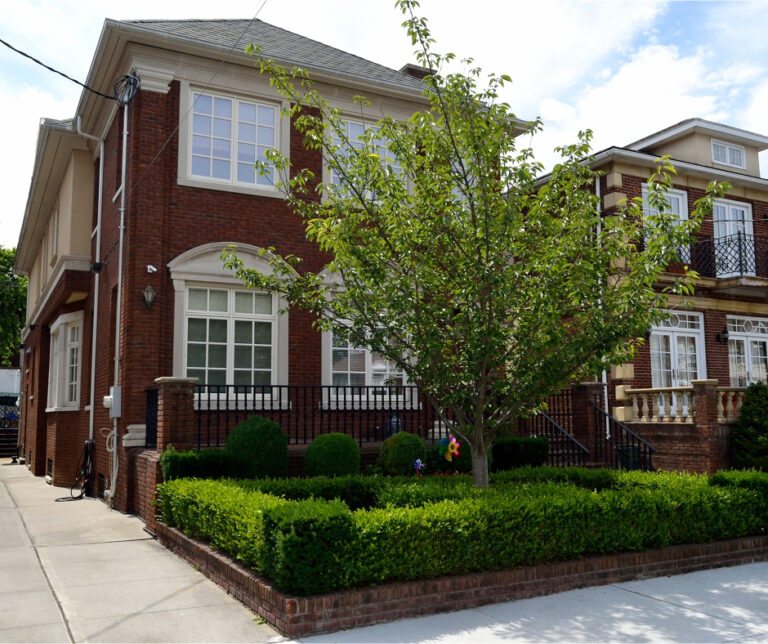Difference Between Residential Versus Commercial Loans
This blog will cover the difference between residential and commercial loans. How can I tell if I need a residential versus commercial loans? Looking into and then investing in commercial real estate can be lucrative, but it requires significant capital investment. John Strange, Vice President of Lending at Lending Network, LLC, said the following:
Main difference between residential versus commercial loans is commercial loans are not regulated like residential loans are. The DODD FRANK SAFE ACT does not apply to commercial loans. The courts and lenders consider investors of commercial properties sophisticated investors.
If you don’t have enough funds to purchase a property outright, consider taking a commercial loan to finance your real estate transaction. But how and when do you know if you need a commercial loan? This article will outline some key factors when deciding whether a commercial loan suits you. We will cover the main comparisons and differences between residential versus commercial loans.
What Are The Main Differences Between Residential Versus Commercial Loans
First and foremost, you need to evaluate your financial situation. Do you have enough cash available to purchase the property you want? If not, then a commercial loan may be necessary. Consider your current income, expenses, and assets when making this determination, as well as your credit score, which will impact your ability to secure a loan.
Firstly, it’s essential to understand the difference between a commercial loan and a conventional loan. A conventional loan is typically used for residential properties, while a commercial loan is designed for commercial real estate, such as office buildings, retail spaces, or industrial properties. Commercial loans are typically larger and require additional collateral, such as business assets or a personal guarantee.
You may need a commercial loan for your next transaction as a real estate investor. Since Commercial loans are specifically designed for commercial real estate transactions, such as purchasing office buildings or shopping centers, here are some factors to consider when deciding whether a commercial loan is right for you:
Property Type and Size on Residential Versus Commercial Loans
A commercial loan may be the way to go if you want to finance a large commercial real estate project. These loans typically have higher maximum loan amounts than residential loans so that they can provide more funding for your project. Commercial real estate transactions do typically involve larger loan amounts than residential properties. A commercial loan may be necessary if you seek a property valued at over $500,000.
Commercial loans are designed for commercial property types, such as office buildings, retail centers, and warehouses. A residential loan may be more appropriate for purchasing a residential property, such as a single-family home or duplex.
Another critical factor to consider is the size and the type of property you want to purchase. Commercial properties are typically more extensive and expensive than residential ones, so you may need a larger loan to finance your purchase. You should also consider the property’s intended use, as some lenders may require different types of loans for other properties.
Use of Property on Residential Versus Commercial Loans
A commercial loan is usually required if the property you purchase or refinance is used for business purposes, such as renting office space or operating a retail store.
Commercial loans typically have shorter loan terms than residential ones, ranging from 5 to 20 years. This can be beneficial if you want to repay your loan quickly and move on to your next project. However, it also means that your monthly payments may be higher.
Commercial loan interest rates are often higher than residential loan rates due to the higher risk involved in commercial real estate transactions. However, if you have a strong credit score and financial history, you may be able to secure a competitive interest rate.
Creditworthiness
Commercial loans typically require a higher credit score and a more stringent credit history than residential loans. Lenders will also consider your business financials, such as revenue and cash flow, when determining your eligibility for a commercial loan.
Additionally, the financial history and creditworthiness of the borrower may also play a role in determining whether or not a commercial loan is necessary. Commercial loans often require a higher credit score and stronger financial history than conventional loans, as the lender takes on a larger risk with the transaction.
In addition to financial considerations, you should also consider your long-term business goals. Are you looking to hold onto the property for an extended period, or are you planning to sell it shortly? If you plan to hold onto the property, then a commercial loan may be a good option, as it allows you to spread out the cost of the property over a more extended period. However, a short-term loan may be more appropriate if you plan to sell the property soon after purchasing it.
Current State of Real Estate Market
Finally, you should consider the current state of the real estate market. If interest rates and property values are low, it may be an excellent time to take out a commercial loan. However, if interest rates and property values are low, you should wait until the market improves before seeking financing.
Refinance your Commercial Property
Furthermore, a commercial loan may be the right option to refinance your existing commercial property. Refinancing your commercial property can help you obtain better terms and interest rates, ultimately helping you save money and improve your cash flow. Before you should decide to buy, before you begin looking for commercial property, during the process, we have vast experience working with buyers to get them ready to purchase their investment. We can take you through the entire financing process for your home loan.
In summary, there are several factors to consider when deciding whether a commercial loan is right for your real estate transaction. You should assess your financial situation, consider the size and type of property you want to purchase, think about your long-term business goals, and pay attention to the current state of the real estate market. With careful consideration and planning, you can decide whether a commercial loan is the best option.
We also can connect you to title companies/attorneys and real estate agents in your area that can help as needed. Call or text Ronda Butts at 407-460-7999 or email at ronda@lendingnetwork.org for more information and further assistance. Ronda is an experienced, dually licensed real estate agent and mortgage originator. She has successfully guided many homeowners through obtaining a home on both the lending and real estate side. She does not represent buyers or sellers but offers free consultation in 48 states at Lending Network, LLC by connecting homeowners, buyers, and sellers to the needed sources.







